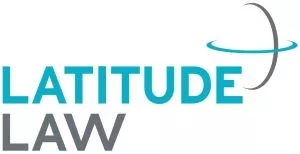The Home Secretary yesterday announced a series of changes to UK Immigration Rules which will radically alter the landscape for sponsored skilled workers, and for British citizens and UK residents with partners from overseas.
Huge Income Increase for Partners of British Citizens
In news largely overshadowed by the announcements on sponsored workers (it is interesting the Home Office's press release barely mentions this aspect of the changes), British citizens and those permanently resident in the UK will now have to meet a much higher salary requirement if they want to bring their foreign partners and children to the UK. The current threshold of £18,600 gross annual salary will increase to the same level as for sponsored workers – to £38,700. , While the income figure has remained static since it was introduced in 2012 and so was probably due an increase, it is difficult to understand the rationale behind such an enormous rise.
Partners of Brits – which includes those couple and families relocating to the UK together – do not make up a huge proportion of the net migration figures recently revised by the Office for National Statistics. Increasing the income threshold to what is the 75th centile of average UK earnings means three quarters of the population could not sponsor a spouse or children from overseas. This seems certain to face legal challenge on human rights grounds if introduced in its stated form.
Details have not been announced, but there are likely to be knock-on effects on other aspects of the rules for partners. Reliance on savings is quite common – it will become less so when the threshold increases from £62,500 to £112,750. We do not yet have confirmation of what dependent (non-British) children will add to the calculations.
Sponsored Worker Salary Threshold Increase
The baseline threshold of £26,200 for most sponsored workers will increase in April 2024 to £38,700, an increase of almost 50%. Salaries for skilled workers are assessed according to the Office for National Statistics' (ONS) Standard Occupation Classification Codes (SOCC). Of several hundred job codes, only a small percentage have a "going rate" over £38,700. This is not a case of the government restricting access to the labour market of "cut-price foreign workers" as some have reported. Sponsored workers have to be paid the going rate – based on general job market data – unless certain criteria apply.
Coupled with a big rise in the Immigration Health Surcharge from January 2024, many employers will be thinking twice about sponsoring overseas workers in future.
It was also announced that the shortage occupation list (SOL) in the Immigration Rules will be replaced by an Immigration Salary List (ISL), which will retain a general threshold discount for certain roles. Reporting on this aspect of the government's plan is confused – there are several reasons why a salary may be discounted, we are not told what happens to these other categories, nor how the ISL will operate.
No Salary Increase for Key Workers
Health and Social Care visa applicants – as well as workers on national pay scales such as teachers – will not be subject to the above salary threshold increase, thus enabling recruitment to continue in these key areas. While salary levels will not increase, the ability of sponsored healthcare workers to bring family members with them to the UK will end; an important change which is likely to influence decisions of overseas staff facing the prospect of relocating to the UK alone.
Imposing this dependants restriction on just one category of worker seems harsh – a knee-jerk reaction to figures showing their family members travel to the UK in relatively large numbers. But this is only a by-product of the high number of health and care visas granted, which is of course down to actue labour shortages in the sector. Penalising health and care workers in such a way sends a clear message that they are considered "second-class" sponsored workers in the UK's visa system.
The Home Secretary also announced the limiting of health and care visas to sponsors subject to inspection by the Care Quality Commission (CQC). As the CQC regulates all medical, dental and care providers already, it is difficult to see the point of such a restriction.
Review of Graduate Route
The government has asked the Migration Advisory Committee (MAC) to look at the working of the Graduate scheme, which is used by thousands of students completing courses at UK universities as a hassle-free route into the workforce. If this goes, the number of students enrolling in UK universities is likely to take a hit.
The content of this article is intended to provide a general guide to the subject matter. Specialist advice should be sought about your specific circumstances.

